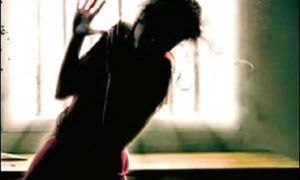Marco Bellocchio's film Rapito, airing tonight on Rai 3, promises to deliver a powerful narrative interlacing themes of identity, power, and oppression based on true historical events. Released in Italian theaters on May 25, 2023, this acclaimed film draws from the book Il caso Mortara by Daniele Scalise, recounting the gripping tale of Edgardo Mortara, a Jewish child abducted from his family in 1858.
The story is set against the backdrop of Italy under the influence of Pope Pius IX, known as the "Papa Re", which caused international uproar and scrutiny around the relationship between the state and the church. The film has been lavishly recognized, winning six Nastri d’Argento and five David di Donatello, showcasing its artistry and narrative depth.
Bellocchio, one of Italy's preeminent contemporary directors, remarkably intertwines the realms of politics, religion, and personal trauma. This film is not merely historical; it serves as a lens through which the viewer can explore the denial of identity and the violence of power—issues still relevant today.
The storytelling brilliance of Rapito lies within its ability to immerse viewers in the emotionally fraught atmosphere of the 19th century, dominated by the Catholic Church's pervasive influence. The film's emotional weight lies heavily on Edgardo's character, portrayed with intense depth by Enea Sala. Edgardo’s struggle symbolizes the tragedies resulting from oppressive institutions justifying their actions under noble pretenses.
Bellocchio's depiction employs visual metaphor effectively. Edgardo is often concealed or draped beneath various fabrics—be it the skirt of his mother, the papal robe, or sheets—symbolizing the manipulation and denial of his identity. This dynamic reveals, starkly, the juxtaposition of faith, law, and humanity through emotionally charged sequences, intertwined with moments of psychological violence.
Witnessing the humiliation inflicted on the Jewish community, including the forced kissing of the church floor, resonates with the themes prevalent within prison cinema, where every act reaffirms the submission of the weak to institutional power. What is portrayed is not just history; it is a poignant reflection on intolerance and the relentless structures of oppression masquerading as charity or moral guardianship.
Bellocchio's depiction avoids gratuitous violence, instead conveying the psychological brutality inherent within power dynamics. This subtle yet effective approach raises troubling questions about identity, faith, and the continued impact of oppressive regimes. The film operates on multiple levels, engaging viewers not merely as observers of history but as reflective participants mulling over the distortions still present today.
The film triumphs not just as entertainment but as an important commentary, powerfully inviting us to confront uncomfortable truths about our own society. Undoubtedly, Rapito is not just stylistically remarkable; it is necessary viewing for those who seek to understand both the past's influence on the present and the contemporary ramifications of such narratives.
With its rich storytelling and complex themes, Rapito demonstrates Marco Bellocchio's unwavering commitment to exploring the human condition through the lens of cinematic art. The masterful direction, breathtaking performances, and poignant themes converge to create not just historical drama but compelling reflections on humanity, leaving audiences with lasting questions about faith, identity, and the exercise of power.



